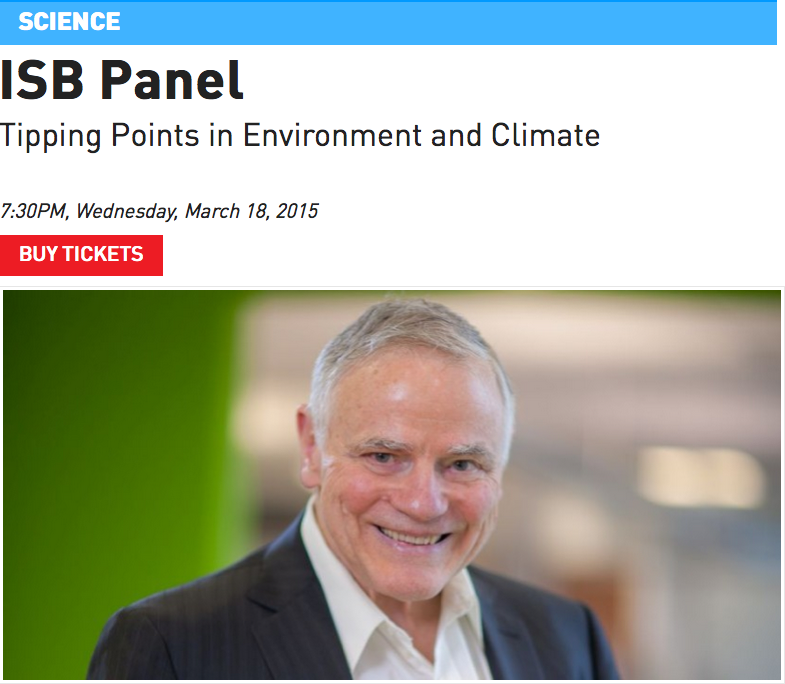ISB at Town Hall Seattle on March 18
 isbscience.org/news/2015/02/12/isb-at-town-hall-seattle-on-march-18/
isbscience.org/news/2015/02/12/isb-at-town-hall-seattle-on-march-18/
Mark your calendars for 7:30 p.m. on March 18 to join ISB for a panel discussion about “Tipping Points in Environment and Climate.” The event takes place at Downstairs at Town Hall. Tickets are $5. Info: townhallseattle.org/event/isb-panel
Panel description:
So-called tipping points — sudden, large-scale environmental changes — are altering our ecosystem in non-intuitive ways that defy our sense of causation. Because the nature of these shifts makes them unexpected, Seattle’s Institute for Systems Biology is using cutting-edge analysis, systems-level thinking, and an interdisciplinary approach to advance research in this field. This moderated forum (with an introduction by ISB Co-founder and President Leroy Hood) will discuss the basic principles of tipping point dynamics, the early warning signs for these events, why basic human intuition is missing the mark in this area, and how we can adapt our thinking about the future of the planet. Panelists include moderator Luke Timmerman, biotechnology journalist; Dr. Stuart Kauffman, Affiliate Faculty at the Institute for Systems Biology and author; Dr. Lauren Buckley, Assistant Professor at the University of Washington’s Department of Biology; and Dr. Dennis Hartmann, Professor at the University of Washington’s Department of Atmospheric Sciences.






